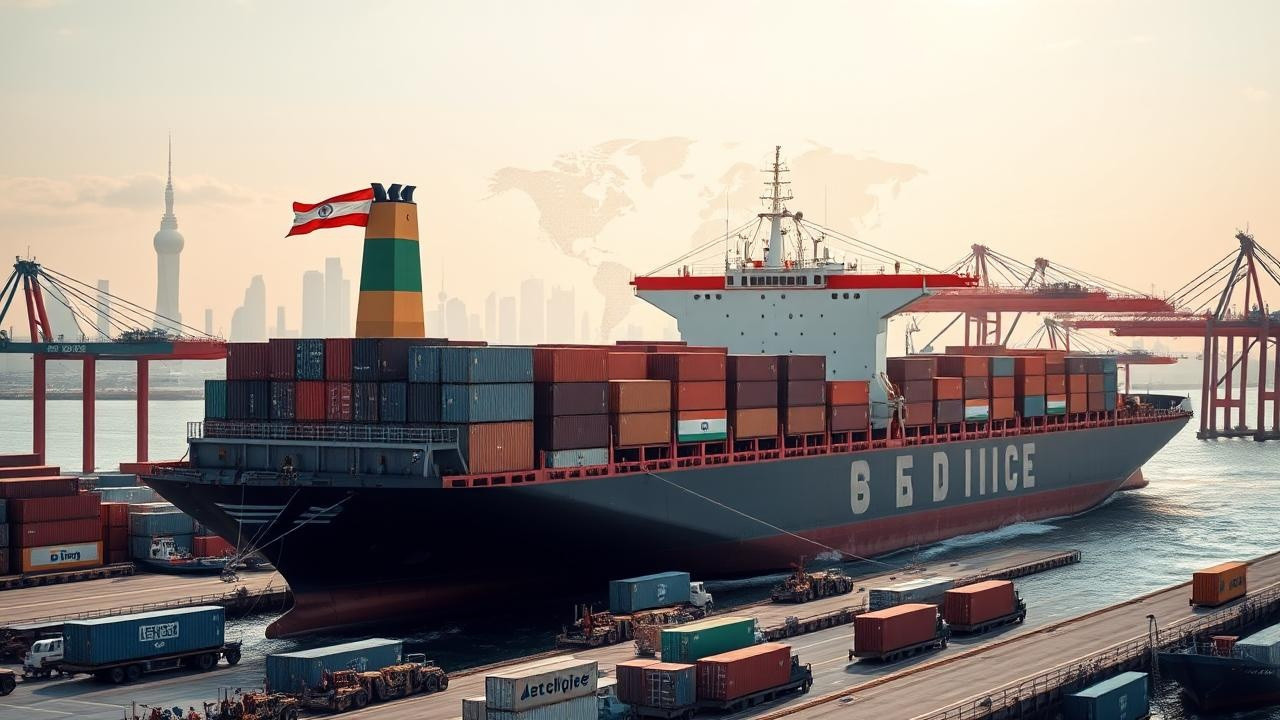CRISIL Ratings reports that the Middle East conflict’s impact on Indian companies’ global trade is currently limited due to small direct trade volumes with Israel and Iran. However, escalating geopolitical risks could affect energy markets and supply chains. Upstream oil producers might gain from higher prices, while refiners and sectors like aviation could face squeezed margins.
Navigating the Geopolitical Seas: Will the Iran-Israel Conflict Rock Indian Businesses?
Okay, let’s be real. When news of escalating tensions between Iran and Israel started flooding our feeds, the first thought that probably crossed a lot of our minds, especially those of us with an eye on the market, was: “How is this going to affect us?” India, with its intricate web of trade relationships, is rarely insulated from global tremors. So, are we bracing for a business tsunami, or is this more of a ripple?
Crisil, the well-respected ratings agency, has weighed in, and their initial assessment offers a somewhat reassuring perspective. While the situation is undoubtedly volatile and demands close monitoring, they suggest that the immediate impact on Indian businesses, so far, appears to be limited. That “so far” is doing a lot of heavy lifting, though. Let’s unpack this a bit.
India’s economic dance card is pretty full these days, with partnerships spanning continents. The Middle East, of course, is a vital partner, not just for energy, but also for trade across a spectrum of industries. Crisil’s report suggests that direct trade with Iran and Israel, while important, isn’t so significant that a disruption would cripple Indian commerce. We’re talking about a relatively small percentage of overall trade, particularly when compared to the giants like the US and China.
However, simply looking at direct trade figures paints an incomplete picture. The real complexity lies in the interconnectedness of global supply chains. Think of it like a massive, intricate tapestry. A tug on one thread can send ripples across the entire design. For instance, any increase in crude oil prices stemming from regional instability immediately impacts India, a major oil importer. This then cascades down, affecting everything from transportation costs to the price of everyday goods. You feel it at the pump, in your grocery bill, everywhere.
And then there’s the shipping angle. The Strait of Hormuz, a critical choke point for global oil shipments, lies smack-dab in the middle of this geopolitical hotspot. Any disruption to shipping lanes through this area could send shockwaves through the global economy, impacting not just oil prices, but also the movement of goods in general. While Crisil’s analysis might focus on direct trade, the potential for indirect impacts on logistics and supply chains shouldn’t be underestimated.
So, what sectors in India might feel the pinch more acutely? Well, sectors heavily reliant on imported raw materials, particularly from the Middle East, would be closely watching the situation. Think about industries like petrochemicals, fertilizers, and even certain segments of manufacturing. These industries operate on thin margins sometimes, and any increase in input costs can significantly impact their profitability.
Also, let’s not forget the impact on Indian expatriates working in the region. Remittances from these workers contribute significantly to the Indian economy. Any instability that disrupts their livelihoods could have a knock-on effect on consumption and investment back home.
What can Indian businesses do? Preparation is key. Diversifying supply chains is a long-term solution, but it’s a crucial one. Companies need to identify potential vulnerabilities in their supply networks and explore alternative sourcing options. Hedging against currency fluctuations is also a smart move, given the potential for volatility in the foreign exchange market. And, crucially, companies need to maintain a flexible and adaptable approach, ready to react quickly to changing circumstances.
While Crisil’s assessment provides a degree of comfort, it’s crucial to remember that the situation is fluid. Geopolitical events are rarely predictable, and unforeseen circumstances can quickly change the landscape. This isn’t a time for complacency. Instead, it’s a time for vigilance, careful monitoring, and proactive risk management.
The truth is, even limited direct exposure doesn’t make us immune. We live in a globalized world, and interconnectedness comes with both benefits and risks. While the immediate threat might seem contained for now, keeping a close eye on the horizon and preparing for potential storms is always a wise strategy. Because in the world of global business, it’s always better to be safe than sorry. It’s not about predicting the future, it’s about being ready for whatever it throws our way. And right now, that means keeping a close watch on the Middle East.







